1. Introduction
Elections are the cornerstone of democratic societies. They allow citizens to choose their leaders and shape policies. The significance of elections extends beyond voting. They embody representation, accountability, and legitimacy, which are fundamental to democracy. The election process has evolved over centuries. It reflects the changing dynamics of political systems and societal values. From ancient Athens to modern nation-states, the history of elections shows humanity’s quest for fair governance. Understanding this history provides insights into democratic institutions and efforts to enhance electoral integrity.
In November 2024, the United States will hold its presidential election. This election is crucial, as it will determine the direction of the country for the next four years. The candidates, their campaigns, and the key issues at stake will shape the future of the nation. In this article, we will focus on the importance of the 2024 U.S. Presidential Election and its impact on the country.
2. 2024 U.S. Presidential Election
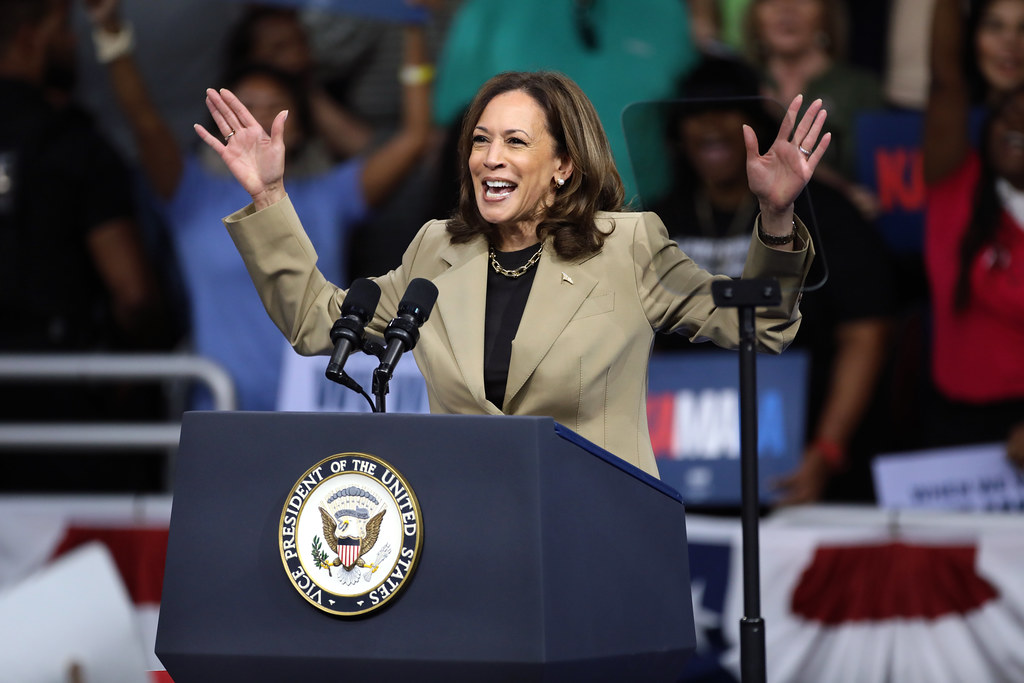
The 60th presidential election of the United States will take place on November 5, 2024. Citizens in every state and the District of Columbia will elect a president and vice president to lead the country for the next four years. Current President Joe Biden won the Democratic Party’s nomination again, but withdrew his candidacy on July 21 under pressure from within the party following his poor performance in the July presidential debate. With this decision, Biden made history as the first president in 56 years not to run again. Biden had decided to support Vice President Kamala Harris while withdrawing from the presidential race. Harris became the party’s official candidate on August 5 by reaching the required number of delegates and preferred Minnesota Governor Tim Walz as the vice presidential candidate.
On the other hand, former president Donald Trump, who lost the 2020 elections to Joe Biden, will run again as the Republican Party’s candidate. Trump’s nomination process has been turbulent. At the end of May, he was found guilty of falsifying business records, becoming the first president in US history to be proven guilty of a crime. In mid-July, he was the victim of an assassination attempt in Pennsylvania and suffered an ear injury. On July 15, at the party convention, he was officially nominated as vice-presidential candidate, along with Ohio Senator J.D. Vance. Trump refused to accept his defeat in the 2020 elections and continued to claim that the elections were rigged, and continues to make similar claims for the 2024 elections.
2.1. Election Procedure
2.1.1. Primary Elections and Party Congresses (January-June 2024)
- In the race between Donald Trump and Nikki Haley in the Republican Party, Trump has a big lead.
- In the Democratic Party, incumbent President Joe Biden won a majority of delegates despite few challengers. (Joe Biden withdrew his candidacy on July 21 under pressure from within the party following his poor performance in the July presidential debate. When Biden withdrew from the presidential race, he decided to support Vice President Kamala Harris; Harris became the party’s official nominee on August 5, reaching the required number of delegates).
- The first primary was held in Iowa on January 15, 2024.
- “Super Tuesday” took place on March 5, 2024.
2.1.2. National Party Congresses
- Republican Party Convention: July 15-18, 2024 (Milwaukee, Wisconsin)
- Democratic Party Convention: August 19-22, 2024 (Chicago, Illinois)
2.1.3. Presidential Debates (September-October 2024)
The Commission has scheduled three presidential debates:
- September 16, 2024 (Texas State University)
- October 1, 2024 (Virginia State University)
- October 9, 2024 (University of Utah)
- Vice Presidential candidates debate: September 25, 2024 (Lafayette College)
2.1.4. General Election
- Tuesday, November 5, 2024
- Around 160 million voters are expected to cast their ballots
- Critical states: Georgia, Arizona, Nevada, Michigan, Pennsylvania, Wisconsin
2.1.5. Electoral College Voting
- 538 electors are scheduled to cast their votes on December 14, 2024
- Minimum number of votes needed to be elected president: 270
- The number of electors in each state is equal to the total number of representatives of that state in Congress
2.1.6. Congress Approval and Swearing-in Ceremony
- January 6, 2025: Congress certifies the election results
- January 20, 2025: Inauguration and formal handover of the presidency
- Launch of the new president’s first 100-day plan
2.2. Election Interference Claims
Former US President Trump’s allegations of rigging in the 2020 elections are still on the agenda. Experts warn of serious attempts to obstruct the electoral process. According to the New York Times, the Republican Party is attempting to restrict the voting system. The party is also already making the election controversial by claiming that immigrants will vote. Trump’s repeated allegations of “election interference” and his accusations against Biden of abusing the Justice Department are increasing political tension.
On the other hand, Trump’s dictatorial statements and plans to use the military raise concerns. His support for the raid on Congress and his rhetoric of abrogating the Constitution deepen democratic concerns. The Trump team’s plan to deploy more than 100,000 volunteers in the elections is also drawing attention. Experts warn of the risk of Chinese and Russian interference in the elections through disinformation campaigns. This raises questions about the future of America’s democratic process.
2.3. Trump’s Lawsuits and Accusations
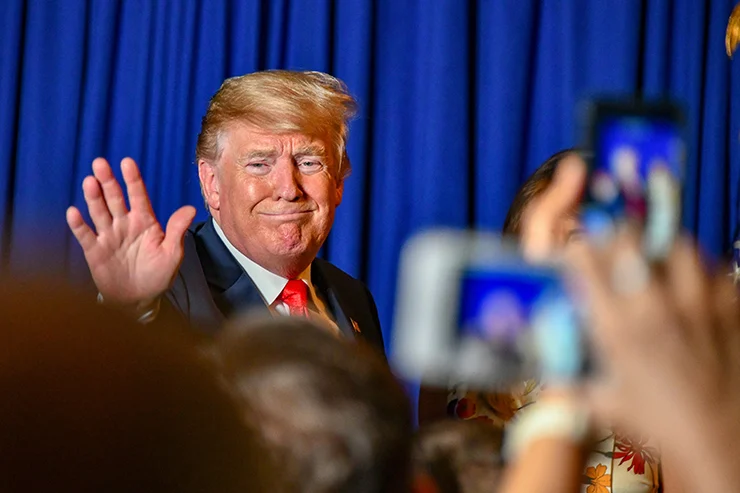
Trump faces four different indictments and a total of 91 charges. These cases will come up during the 2024 presidential campaign. On May 30, Trump was found guilty in “The People of the State of New York v. Donald J. Trump”. He was charged with 34 counts of falsifying business records related to hush money payments to Stormy Daniels to influence the 2016 election. Trump became the first former US president to be convicted of a crime. Trump and many Republicans accused Joe Biden and the Democratic Party of interfering in the election without evidence.
Trump was also charged with 57 felony counts. Trump faces four counts of attempting to disrupt the 2020 presidential election and involvement in the January 6 Capitol attack, and 10 counts of attempting to disrupt the election results in Georgia. He has also been charged with 40 additional counts of withholding classified documents and obstructing efforts to retrieve them. On May 9, 2023, Trump was found liable for sexual misconduct in the case “E. Jean Carroll v. Donald J. Trump”. He was ordered to pay $88.3 million in damages. Trump was also found guilty of financial fraud in September 2023 and ordered to pay a fine of $457 million. This decision is currently under appeal.
3. Campaign Subjects
3.1. Right to Abortion
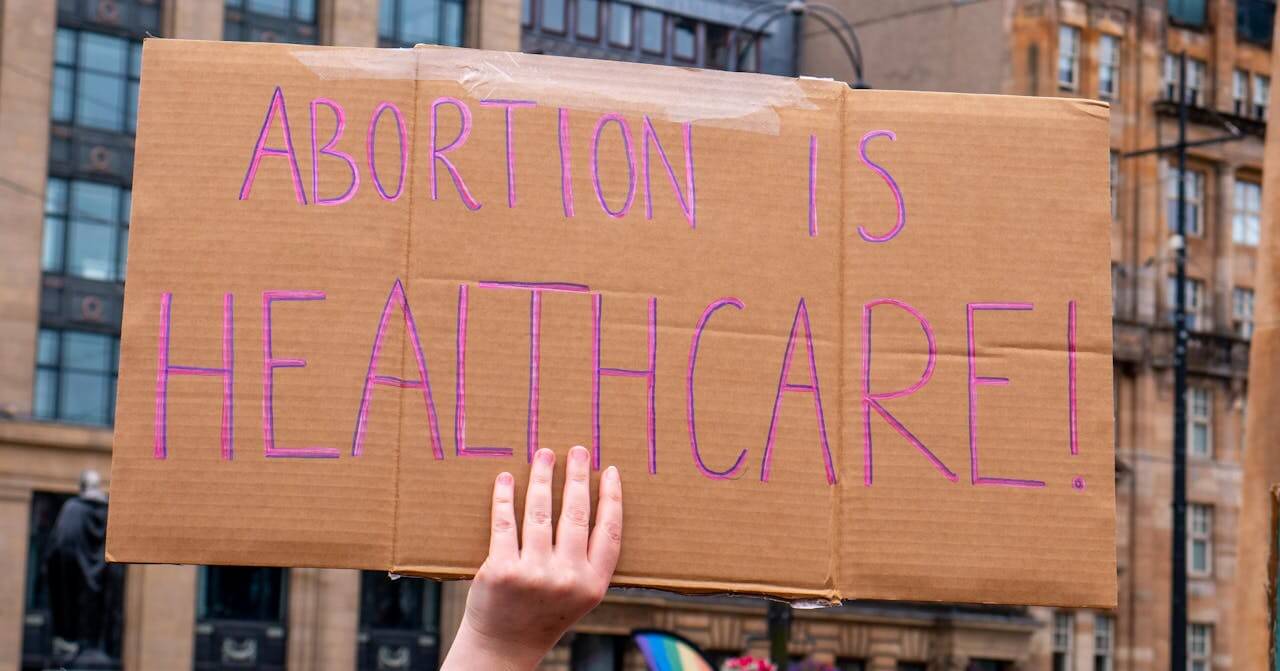
This will be the first presidential election after two important court decisions on abortion rights. The United States Supreme Court left abortion law to the states in the Dobbs case in 2022. Three justices appointed by former president Donald Trump were instrumental in this decision. In 2023, a federal judge overturned the FDA’s approval of the drug mifepristone. Both decisions were supported by Republican politicians. While Democrats see access to abortion as a right, Republicans favor restricting its legality. As of April 2023, most Republican-controlled states have banned abortion. According to the Kaiser Family Foundation, 15 states have outlawed abortion.
3.2. Border Security and Migration
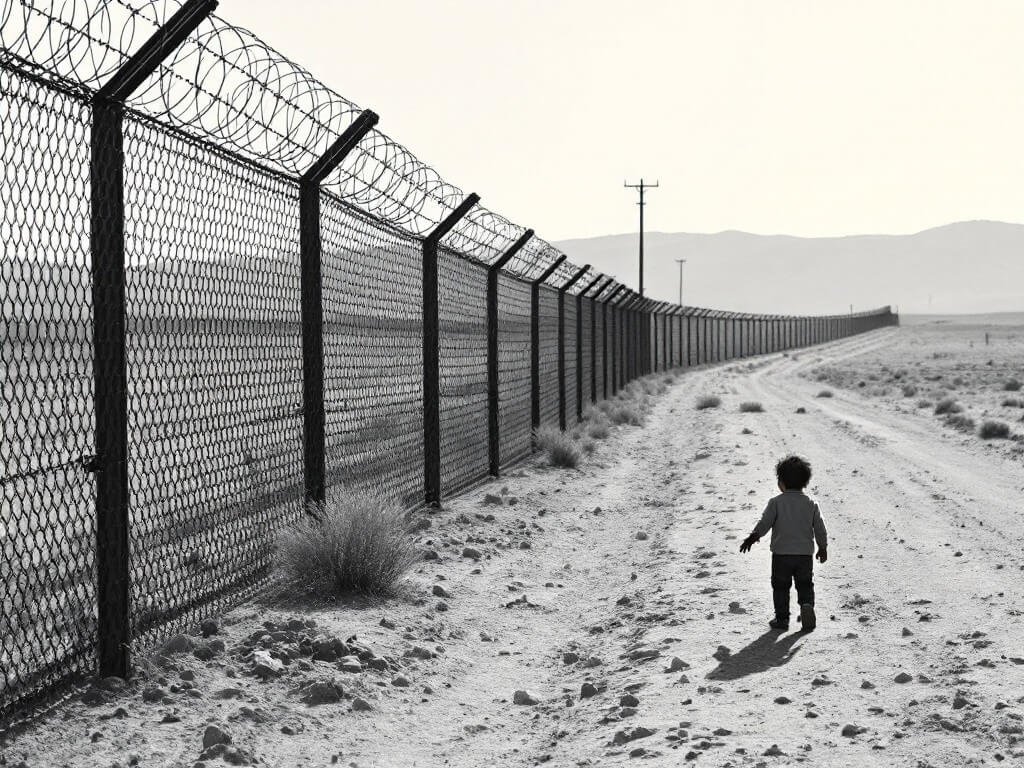
Border security and migration are key issues in the 2024 elections. Polls show that the majority of people want to reduce illegal immigration. There are also those who are concerned about the decline of the “white population”. In 2023 and early 2024, migrants from Mexico increased, but by June 2024, illegal crossings had declined. This decline was attributed to sanctions by the authorities and Biden’s restrictions. In February 2024, Biden and Congress agreed on a new law. However, Trump criticized this bill and claimed that the country would suffer on immigration.
Trump said he would increase deportations if elected. He said he would deploy the US military at the border. He would also use local law enforcement to secure the border. He plans to increase the budget of Customs and Border Patrol and plans to complete the construction of the wall on the southern border. According to The New York Times, Trump aims to use the military to deport 11 million people and detain illegal immigrants in camps. Trump has escalated his anti-immigrant rhetoric during the campaign, making false and risky claims such as an “immigrant crime wave”. He called some illegal immigrants “not human beings” and referred to them as “animals”. Claiming that immigrants are poisoning the blood of the country, Trump’s rhetoric has been likened to Hitler’s ideas. Trump’s comments are violent and he continues to use language that targets people.
3.3. Climate Change
Climate change is a major topic of debate in the 2024 presidential election. In 2023, the US set a record for crude oil production, exceeding 13 million barrels per day under Trump. The COVID-19 pandemic and Russia’s invasion of Ukraine affected energy supply. The Biden presidency of 2021-2024 was characterized by global energy crises.
Trump downplays human-caused climate change and criticizes energy policies. He supports oil exploration on public lands with the slogan “Drill, baby, drill”. He promises tax breaks for oil, gas and coal producers. Trump plans to make the US the country with the lowest energy costs. He has also proposed canceling electric vehicle projects and leaving the Paris Agreement. He aims to roll back parts of the 2022 Inflation Reduction Act.
3.4. Economic Problems

Economic problems stand out as the biggest concern of voters in the 2024 elections. The high inflation that started in 2021 was caused by disruptions in the global supply chain and the pandemic. This was exacerbated by rising energy and food prices following Russia’s invasion of Ukraine. During the pandemic, working mothers in particular experienced great difficulties. Many women had to quit their jobs due to childcare responsibilities. The Biden administration introduced child tax credits and family supports to address this problem.
Trump’s economic vision is moving in a very different direction. He argues that tax cuts for the rich will increase employment. He proposes radical changes in global trade. He plans to impose a 10 percent basic tax on all imports. He aims to impose a 100 percent tariff on foreign vehicles and a 60 percent tariff on Chinese products. The “Trump Reciprocal Trade Act” aims to retaliate against countries that impose tariffs on the US. Economists warn that these policies could lead to a global trade war. Trump’s protectionist policies could isolate the US from the global economy.
3.5. Democracy
Democracy is one of the most critical issues in the 2024 presidential election. According to the latest AP-NORC poll, 62 percent of Americans are concerned about the future of the democratic system. Liberals see conservatives’ authoritarian tendencies and attempts to change the 2020 election results as dangerous. Republican voters, on the other hand, see the four separate lawsuits against Trump and the impeachment attempts as a political conspiracy. A majority of voters believe that the outcome of the 2024 elections will determine the future of American democracy.
Trump’s campaign has been criticized by the media for taking an increasingly authoritarian line. He plans to fire thousands of public servants from federal agencies whom he sees as “obstacles” and replace them with his supporters. He wants to expand presidential powers and increase the power of the executive branch. He wants to make sweeping changes to critical agencies such as the intelligence agency, the State Department and the Defense Ministry. He calls the January 6 raid on Congress “great patriots” and promises to pardon them. Trump’s statements hinting at the possibility of violence if he loses the election raise concerns about democratic institutions.
3.6. LGBT Rights

Democrats argue that conservative politicians in the states have restricted LGBT rights and have recently targeted transgender rights in particular. Republican candidate Trump, on the other hand, plans to change existing policies on transgender people. He announced that he would introduce new regulations for bathrooms and locker rooms used by transgender students at school. He aims to introduce a law at the federal level that recognizes only two genders. Claiming that trans identity is manufactured by the “radical left”, Trump wants to sanction teachers who discuss trans issues in classrooms. He has previously tried to implement similar policies and attempted to restrict trans rights in Title IX and the Affordable Care Act.
4. Candidates
4.1. Democrat Party
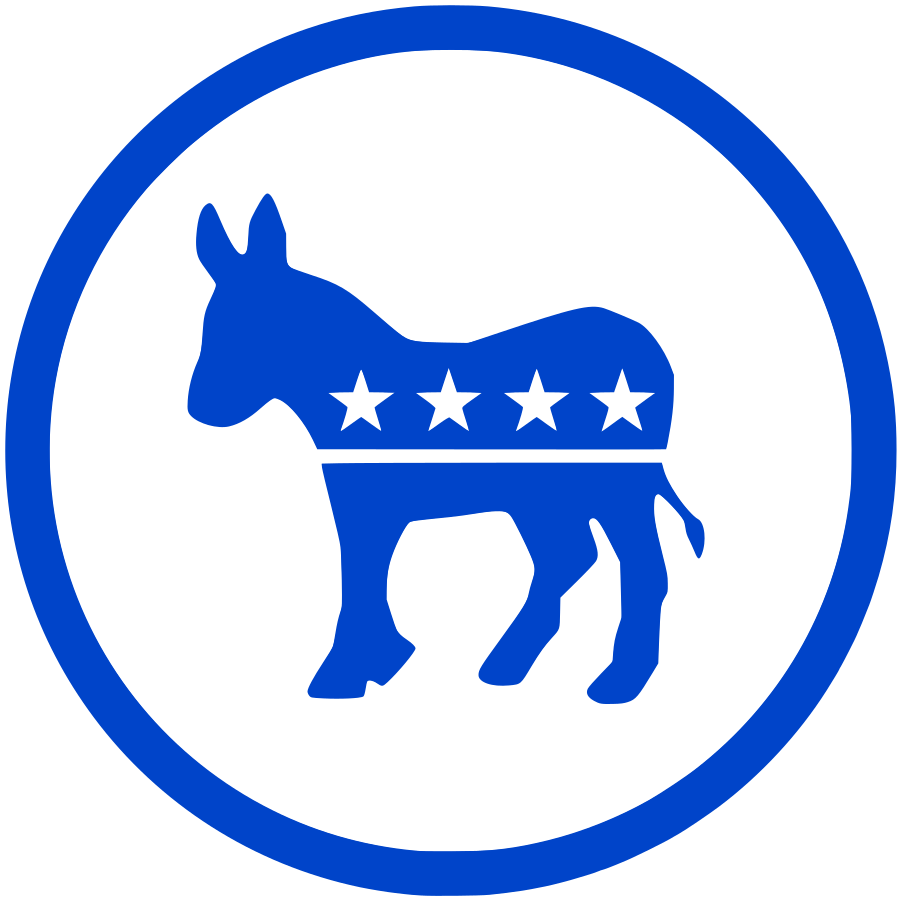
Current President Joe Biden announced his candidacy for re-election on April 2023 and named Harris as his vice presidential running mate. Republicans have stepped up their criticism of Harris. Biden’s low approval ratings and age have raised concern within the party. Democratic figures such as Carolyn Maloney, Tim Ryan and Joe Cunningham warned Biden not to run. Public opinion polls showed that Biden’s age was a major issue for voters. Biden, who took over the presidency at the age of 78, would be 86 at the end of his second term. According to the NBC poll, 70 percent of Americans did not want him to run again, including 51 percent of Democrats. According to FiveThirtyEight data, his approval rate hovered at 41 percent. However, the successful performance in the 2022 midterm elections strengthened Biden’s position within the party.
Marianne Williamson and Robert F. Kennedy Jr. announced their candidacies early. Williamson had previously sought the Democratic presidential nomination in 2020. Williamson’s campaign had its ups and downs. Kennedy later ran as an independent. Dean Phillips and Jason Palmer also entered the race. Palmer, who only had success in American Samoa, dropped out. Dean Phillips dropped out after his Super Tuesday defeat. Biden dropped out of the race in July 2024 following his controversial debate with Trump and his COVID-19 diagnosis, and announced his support for Harris. Harris received party support and became the new Democratic nominee, securing enough delegates within a day. This unexpected development brought a new dimension to the election race.
4.2. Republican Party
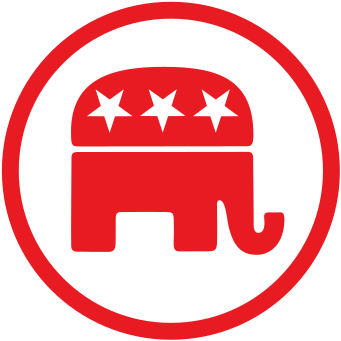
Trump, who was elected president in 2016 and lost to Biden in 2020, is running again in 2024. If he wins, he will be the second president to win a second consecutive term after Cleveland. He announced his candidacy at Mar-a-Lago in November 2022. In 2023, he faced two major lawsuits: the payments to Stormy Daniels and accusations of withholding classified documents. Trump denied all charges.
Another candidate, Ron DeSantis, initially looked a strong contender. He raised more money than Trump in 2022. He did well in the polls. In May 2023, he announced his candidacy in a Twitter broadcast with Elon Musk. He promised to fight leftism. He raised a million dollars in the first hour. But Trump made a big difference in the polls. In FiveThirtyEight, Trump got 52 percent and DeSantis 15 percent. After the victory in Iowa, DeSantis and Ramaswamy withdrew. Nikki Haley resisted but without success; after Super Tuesday she withdrew too. Trump became the presumptive Republican nominee in March 2024. He survived an assassination attempt in July. At the convention, he announced J.D. Vance as his vice presidential candidate.
4.3. Third Parties and Independent Candidates
4.3.1. Libertarian Party

The Libertarian Party nominated Chase Oliver for the 2024 presidential election. The election was held at the end of May. Oliver had previously run for Senate in Georgia. The Libertarian Party is currently eligible to run in most of the US. The party can compete in 37 states. The total number of voters in these states is 380.
4.3.2. Green Party

The Green Party’s candidate was Jill Stein. She received enough delegate support in May 2024. Stein was previously the party’s candidate in 2012 and 2016. Stein, a medical doctor, served on the city council in Lexington. The Green Party’s official convention will be held in mid-August. According to June data, Stein will be able to run in 22 states. These states have a total of 273 delegates. Stein will be able to run in these states both as a Green Party candidate and as an independent candidate.
4.3.3. Independent Candidates and Others
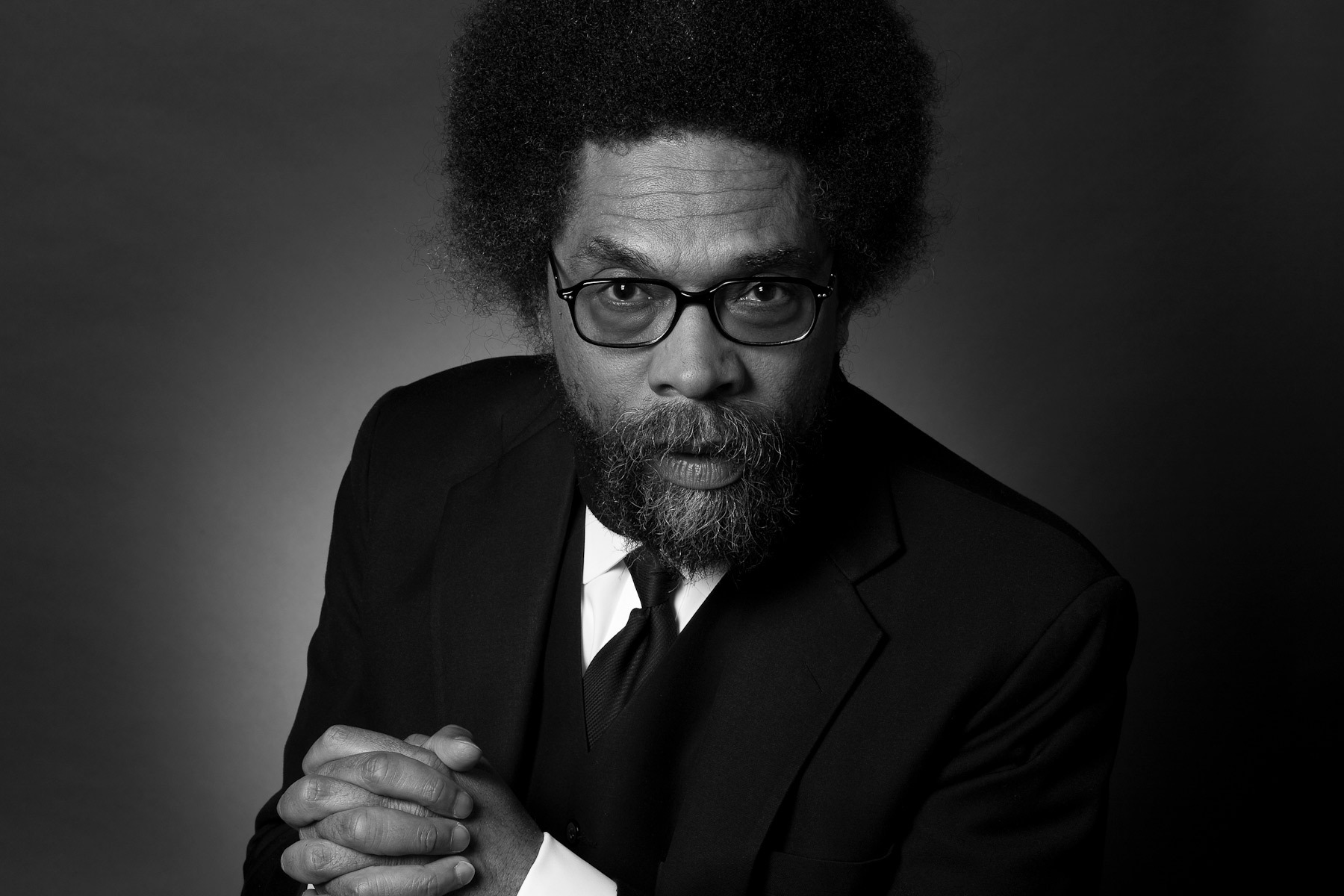
Many candidates from different parties and views are competing in the 2024 elections.
- The Marxist-Leninist Party for Socialism and Liberation nominated Claudia De la Cruz in September 2023. Her running mate was Karina Garcia.
- The famous academic Cornel West had an interesting process. First he ran for the People’s Party. Then he switched to the Green Party. Finally, he decided to run as an independent candidate. He chose California activist Melina Abdullah as his running mate.
- Constitution Party candidate Randall Terry announced his candidacy in March 2024. He was elected by the party in April. He nominated Stephen Broden as his vice president. He found support in Oregon. But the Nevada, Utah and Wyoming organizations rejected him.
- In the American Solidarity Party, Peter Sonski stood out. He announced his candidacy in February 2023. He received 52 percent of the vote in the party’s online primary. He won in the first round of the ranked-choice system.
- The Socialist Workers Party relied on the duo of Rachele Fruit and Dennis Richter. They prepared to run in Minnesota, Louisiana, New Jersey, Washington, Vermont and Tennessee.
- There were some interesting names among the independent candidates: Massachusetts Senate candidate Shiva Ayyadurai, Lakers co-owner Johnny Buss, musician Joseph Foreman, aka Afroman, and conservative author Taylor Marshall.
4.4. Withdrawals

Robert F. Kennedy Jr’s political journey has witnessed interesting developments. He first entered the race from the Democratic Party, then announced his independent candidacy in October 2023. A member of the famous Kennedy family and a lawyer specializing in environmental litigation, Kennedy Jr. is known for his controversial views. He attracted strong support from voters dissatisfied with the existing political order. In polls at the end of 2023, he received the highest third-party support in 30 years. He comes from a family with a strong political background: Her father is former Attorney General and Senator Robert Kennedy, and her uncles are former President John Kennedy and Senator Ted Kennedy. In March 2024, he selected Nicole Shanahan as his running mate, but dropped out of the race five months later.
Kanye West’s presidential adventure is also remarkable. He first signaled it in November 2019 with a joke. “By 2024, I’ll have created so many jobs that I won’t have to run, I’ll walk for president,” he said, prompting laughter. His team declined the Federal Election Commission’s request for information, saying West was still undecided. West officially became a candidate in November 2022. In an interesting move, the former president offered Trump a running mate. He said Trump was surprised and warned him he would lose. However, in October 2023, he announced through his lawyer that he was giving up the nomination.
5. Attempts to Assassinate Trump
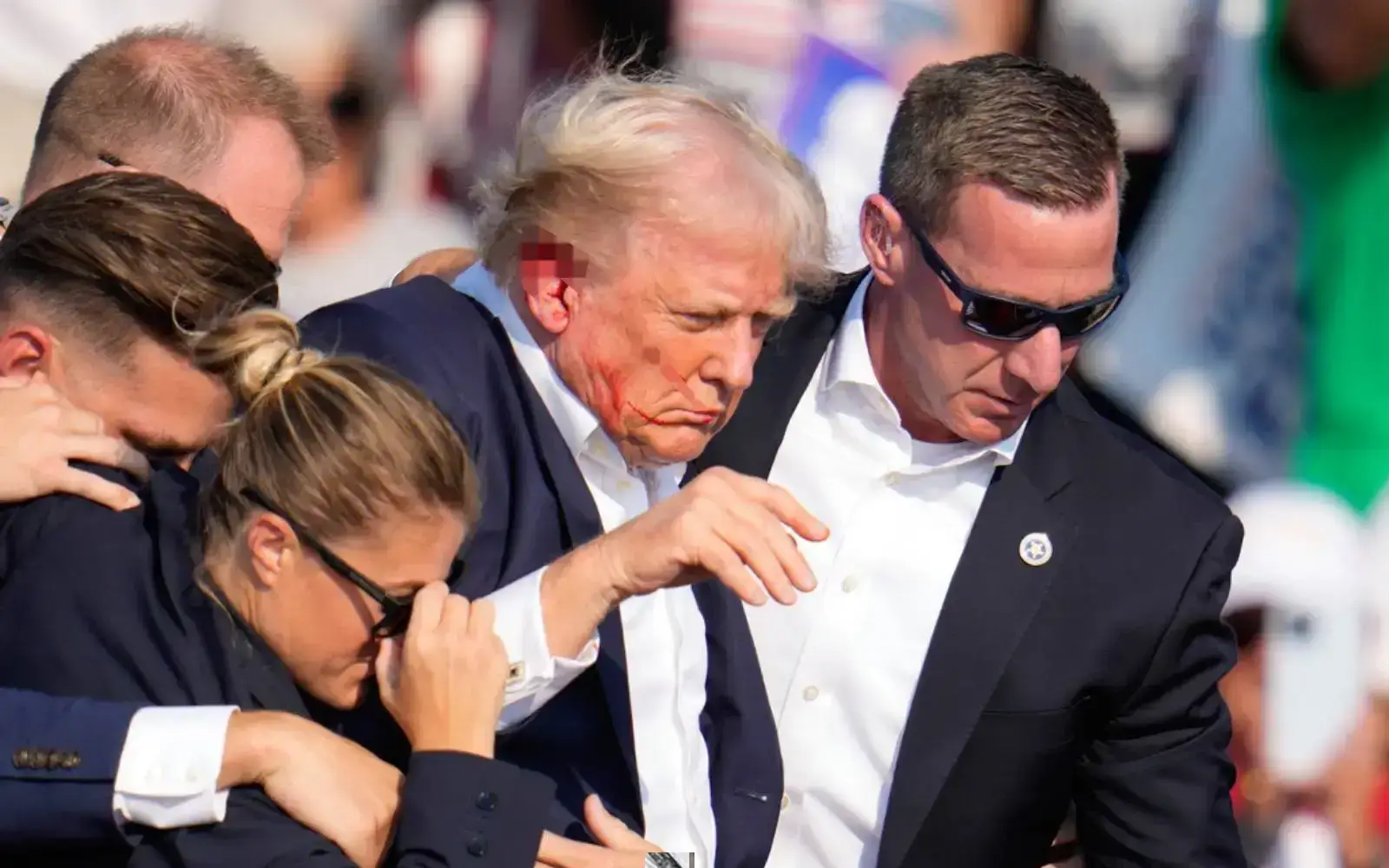
There have been two major assassination attempts against Donald Trump. The first took place in Pennsylvania on July 13, 2024. At a campaign rally near Butler, a 20-year-old assailant named Thomas Matthew Crooks fired eight shots from the roof. The bullet grazed Trump’s right ear, causing minor injuries. One person was killed and two were seriously wounded in the attack. The attacker was neutralized by a Secret Service sniper. Trump showed a resilient demeanor despite his injury. Despite his bleeding ear, he stood up and chanted “fight”. He was hospitalized by his security team and taken to New Jersey for treatment. It was the first successful attack on a president since Reagan was injured in 1981. It was also the first time since 1972 that a presidential candidate was wounded in an assassination attempt. Political observers saw the incident as the result of increasing polarization.
The second attempt took place in Florida. The suspect, Ryan Wesley Routh, was captured on the course where Trump was playing golf. Routh, who was identified as a Ukrainian sympathizer, hid in a wooded area for 12 hours and had been planning the attack for months. The charges against Routh include attempted assassination, illegal possession of a firearm, carrying a weapon with a serial number removed and assaulting a secret service officer. The suspect, who has a previous criminal record, faces up to 20 years in prison for weapons offenses and life in prison for the assassination attempt. Although he did not fire his weapon, notes were recovered that indicated his intention to kill Trump.
6. How are elections conducted?
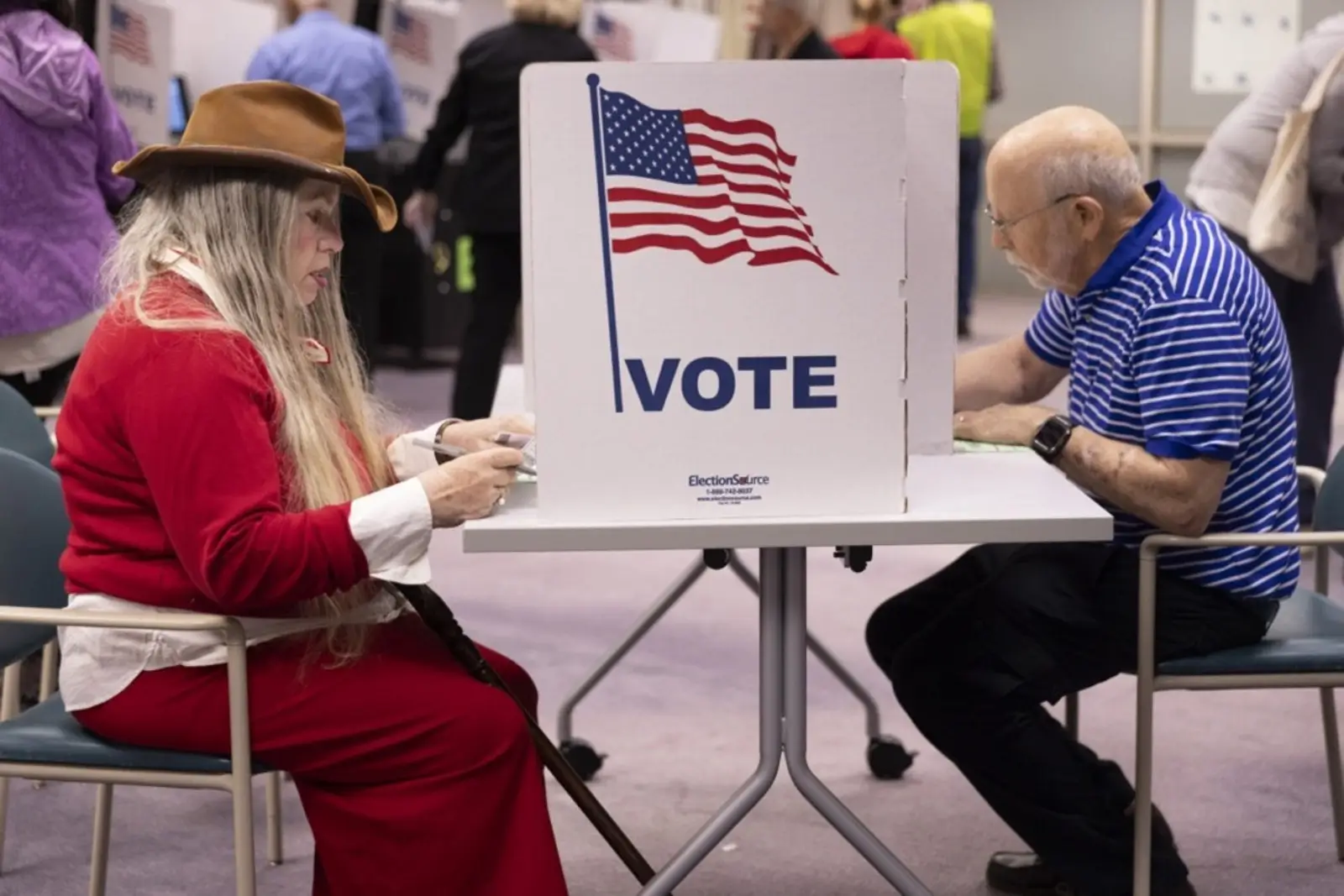
The US presidential election system works differently from a direct popular vote. Elections are held separately in each state and run through the Electoral College system. When voting, citizens actually elect delegates to represent their states. These delegates then determine the president and vice president. The system consists of a total of 538 delegates and it is necessary to reach at least 270 delegates to be elected president.
The number of delegates for each state is determined in proportion to its population. In all states except Maine and Nebraska, the winner-take-all rule applies. This means that the candidate who wins in a state, even by a very small margin, wins all the delegates of that state. In Maine and Nebraska, delegates are allocated according to vote share. Election campaigns are usually concentrated in the so-called “swing states”, the 12 or so states where the outcome is uncertain. Other states traditionally vote for a particular party.
This system can sometimes produce interesting results. In 2016, Hillary Clinton received 3 million more votes nationwide, but Donald Trump was elected president because he won more delegates. This shows that a majority of the national vote is not always enough to win the presidency.
7. Who will be elected and when are the results announced?
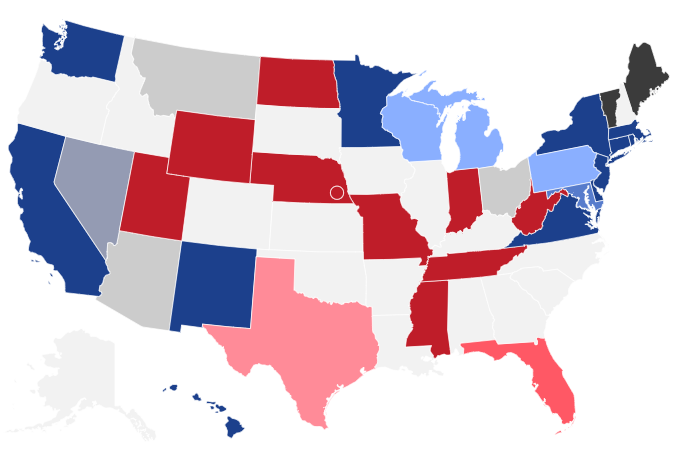
While the presidential race gets most of the attention in US elections, voters also elect members of Congress, the country’s legislature. All members of the House of Representatives, the lower house of Congress (435 people) will be re-elected. In the upper chamber, the Senate, elections will be held for 34 seats. Currently, the Republicans control the House of Representatives and the Democrats control the Senate. This balance is important because the House of Representatives has a say on budgetary matters, while the Senate has a say on high-level appointments. Both chambers can oversee the president’s policies and, if they belong to different parties, they can block his plans.
Election results are usually announced on election night, but sometimes, as in 2020, the counting process can take days. In the case of a change of president, the period between the election and the inauguration is called the “transition period”. During this period, a new leadership team is formed and ministerial appointments are made. The new president officially takes office in January with a swearing-in ceremony in front of the Capitol in Washington.


 ByKus
ByKus Historia
Historia Logos
Logos Humanitas
Humanitas Mythos
Mythos Theologia
Theologia Persona
Persona Quid
Quid Gestae
Gestae Politico
Politico Mundialis
Mundialis Oeconomia
Oeconomia Athletica
Athletica Technologia
Technologia Medicina
Medicina Scientia
Scientia Astronomia
Astronomia Academia
Academia Lingua
Lingua Bibliotecha
Bibliotecha Instutia Online
Instutia Online Naturales
Naturales Humaniores
Humaniores Aesthetica
Aesthetica Cinemania
Cinemania Pictura
Pictura Sculptura
Sculptura Architectura
Architectura Musica
Musica Artificia
Artificia Atari
Atari
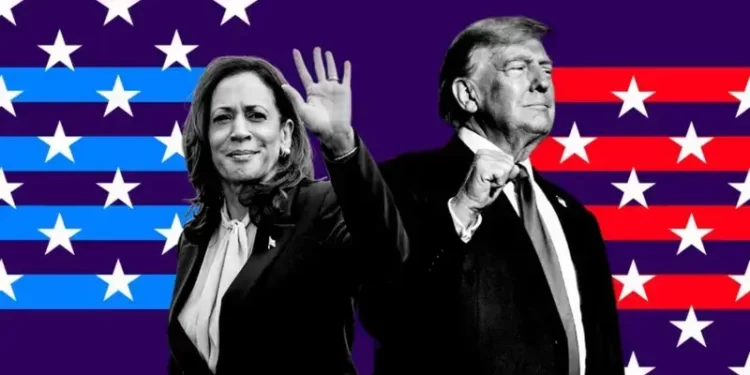









 Saint Brigid of Kildare
Saint Brigid of Kildare
